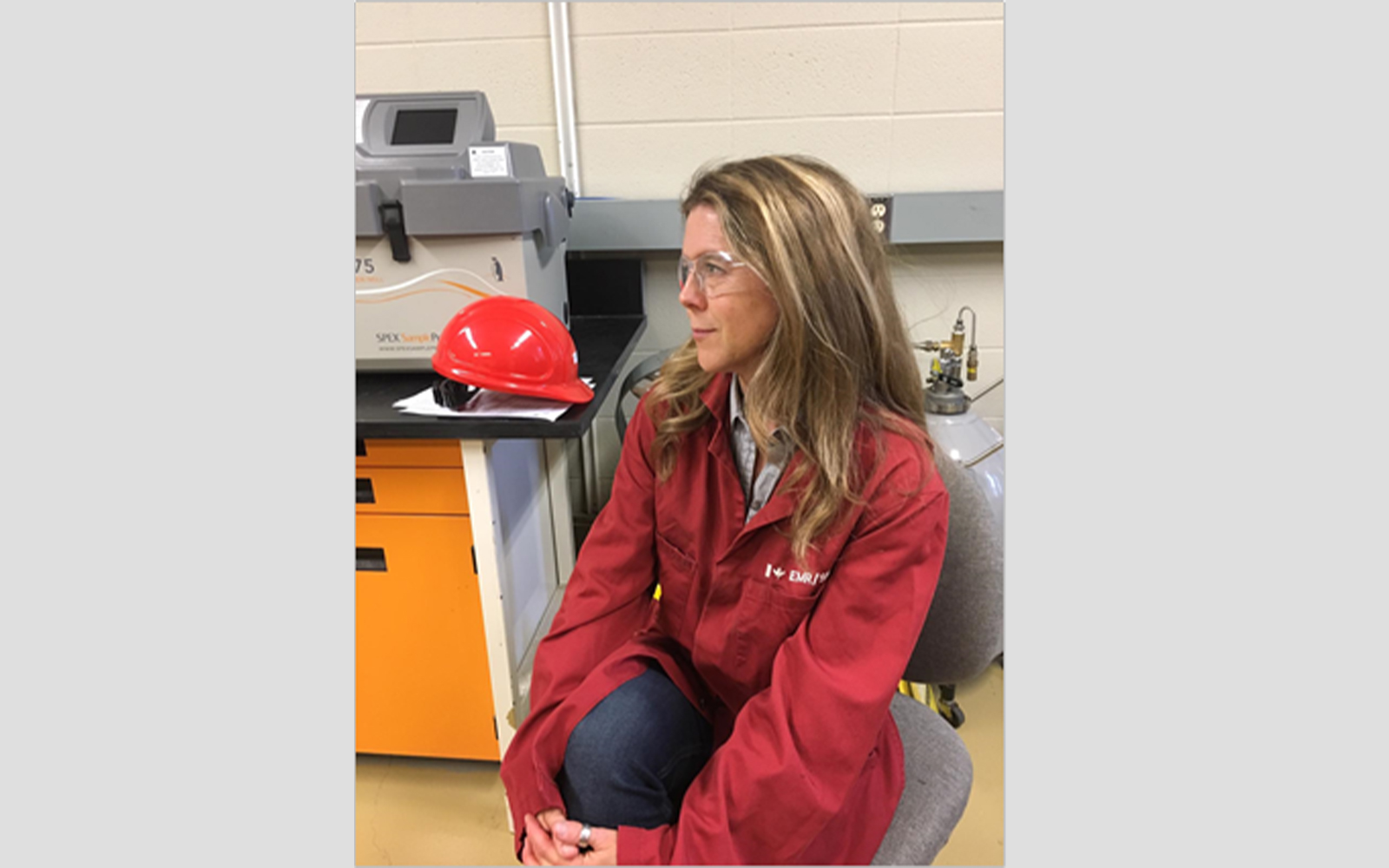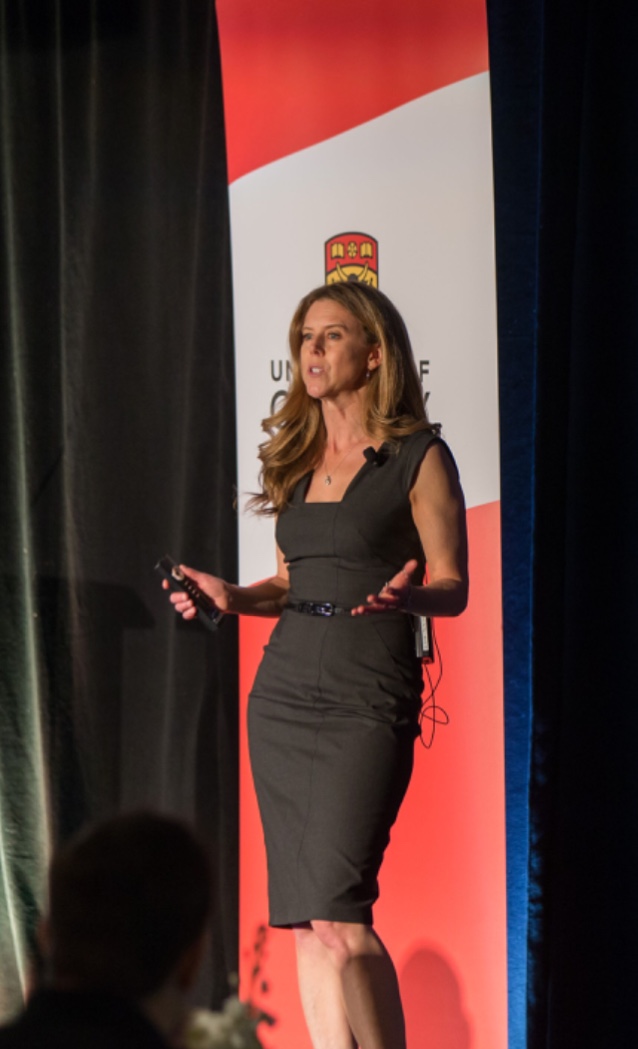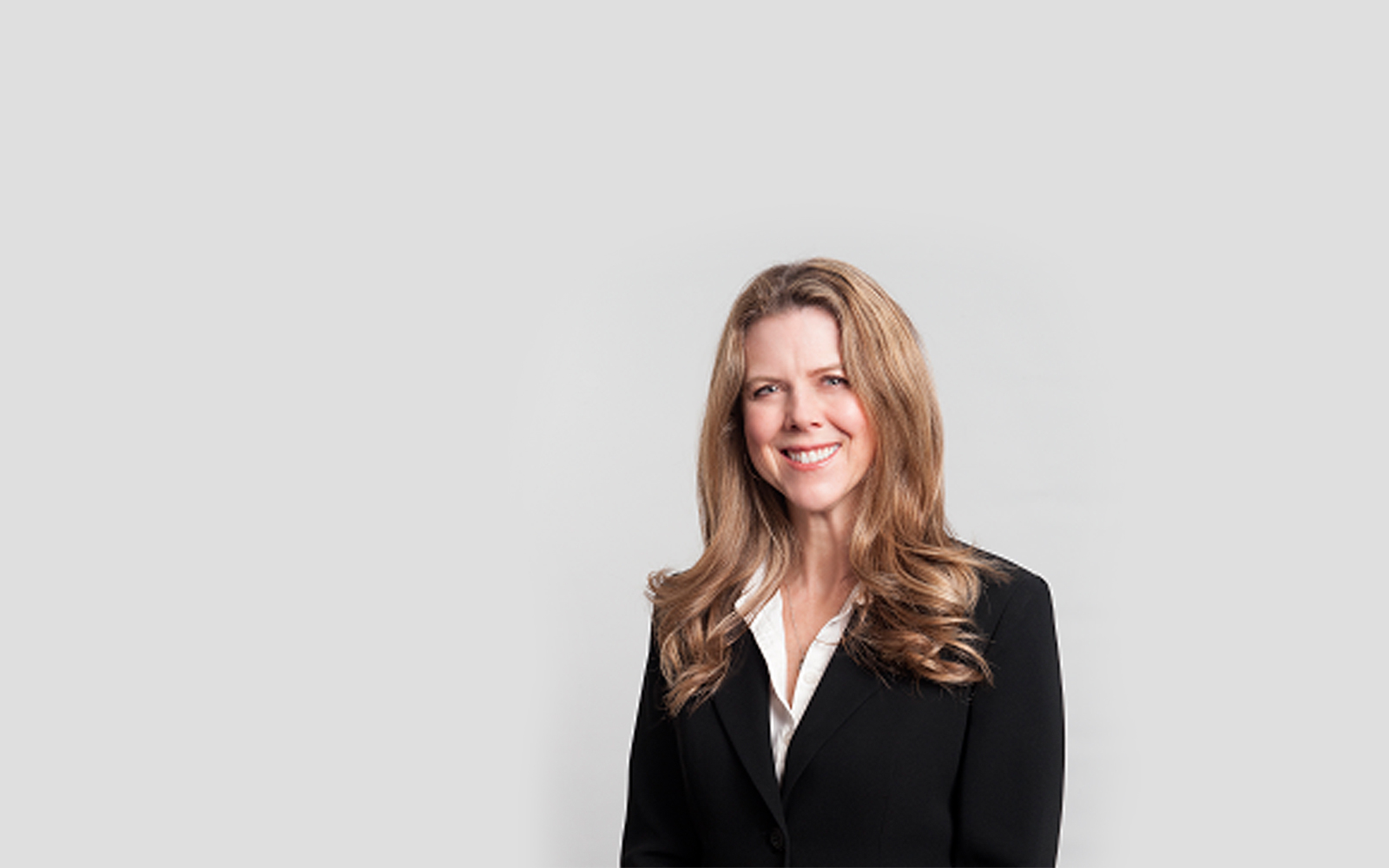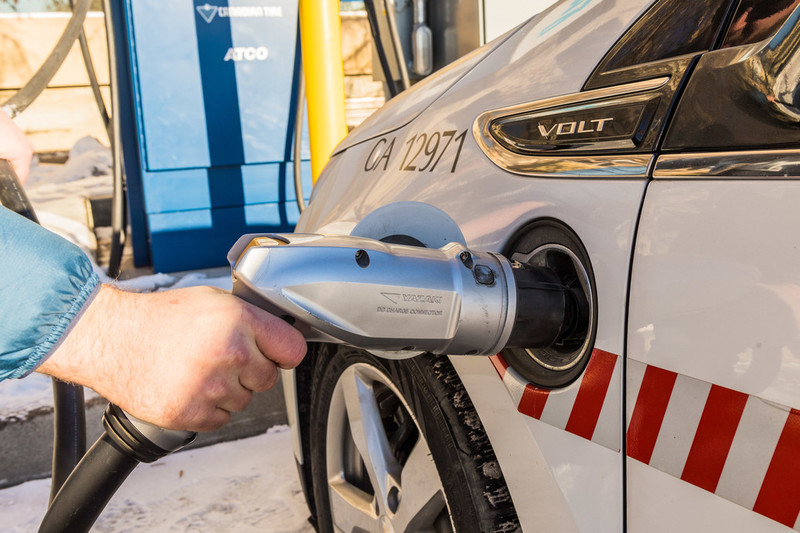Photo courtesy of Summit Nanotech Corp.
Game Changer: The Greening of Lithium Mining Through Nanotech
What do your cellphone, your laptop, and that shiny new electric car driving down Deerfoot Trail have in common? They all run on lithium batteries.
Around the world, lithium mining is increasing exponentially and is posing a huge environmental challenge—one that professional geophysicist Amanda Hall is facing head-on.
In 2018, she founded Summit Nanotech, a Calgary-based start-up that has developed what it calls the greenest lithium extraction technology in the world.
The company’s Green Lithium AL1 Process uses special nanofiltration membranes that physically separate battery-grade lithium ion compounds from natural brine fluids. It uses less energy than traditional lithium mining methods, and doesn’t use toxic chemicals or fresh water.
“It’s a game changer, because right now the mining industry uses a lot of chemicals and tons of fresh water to extract lithium,” says Hall. She believes the technology will help transform the mining industry, allowing it to use more sustainable, efficient, and effective processes.
“We can bring down their operating expenses and allow them to recover more lithium using our clean technology process. This, in turn, helps in the manufacturing of electric vehicles at lower costs.”
Amanda Hall, P.Geo., co-founder and CEO/CTO of Summit Nanotech, is championing the use of nanotechnology to clean up the lithium mining sector.

Photo courtesy of Summit Nanotech Corp.
Hall, who grew up in Ontario, has always loved science and credits her elementary school science teacher—Mr. Hubbard—with boosting her confidence and encouraging her curiosity. “He instilled in me a fearlessness to tackle problems and figure them out,” she recalls.
After graduating from the University of Toronto with a degree in biology and physics, Hall moved west and earned a geophysics degree at the University of Calgary. She worked in an industrial lab, in potash mining, and then as a geophysicist in the oil and gas industry before transitioning into cleantech.
Hall might be new to the sector, but she and her company are already attracting accolades.
In September 2018, Hall was named one of six finalists in the Women in Cleantech Challenge presented by MaRS Discovery District (a Toronto-based business incubator) and Natural Resources Canada. She was awarded more than $900,000 in cash and in-kind donations to help develop her technology and grow her company. She hired five scientists—three engineers, a sustainable development scientist, and a PhD chemist—and is refining her prototype at Natural Resources Canada’s CanmetENERGY research centre in Devon, southwest of Edmonton.
The winner of the $1 million in prize money—to be announced in March 2021—will be the woman who has made the most progress advancing her technology.
In 2019, Summit Nanotech also won an Energy New Venture Competition award, and the National Angel Capital Organization named Summit Nanotech one of Canada’s Top 30 Most Promising Startups. Summit Nanotech is also a participant in the Creative Destruction Lab, a seed-stage program for massively scalable science-based companies. “It’s like Dragons’ Den on steroids,” Hall smiles.
Hall has travelled to places like Chile, in South America, to pitch her technology for lithium mines. But she’s also looking to make an impact closer to home. She wants to help Canada’s oil and gas sector create a secondary revenue stream by extracting lithium from oilfield brines.
Amanda Hall, P.Geo.

Photo courtesy of Summit Nanotech Corp.
She sees a strong future, “as long as we can abandon our entrenched habits of doing things the way they’ve always been done. We need to innovate, embrace a low-carbon future, and provide the most sustainable barrel of oil to the world. When we embrace diversity in our energy systems—renewables mixed together with oil and gas—that creates an energy resilience for our province that we’ve never had before.”
And what does the future hold for Hall and Summit Nanotech?
“The ultimate goal is to circle back and start recycling lithium ion batteries. We know that a better future is one in which we don’t extract at all. That’s something we’d like to tackle someday.”



